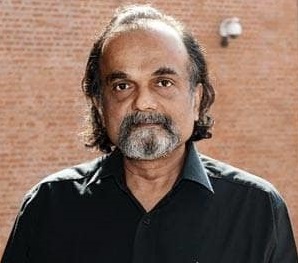Despite the intention to encourage and support local self government, the post independence period has witnessed continuous erosion in local governance of cities. Indeed, the decline in the quality of living (at least for the middle classes) in cities, can be directly related to the loss of power and autonomy of the local elite (typically industrialists and traders). As parties emerged strongly, national and regional concerns and agenda completely dominated the politics at the local level. This was not conducive to elected officials bearing responsibility to local issues and concerns covering functions and services such as sewerage and sanitation, roads, water, primary schools, conservancy services, street lighting, public health and so on. While some intrusion of regional and national level issues into local politics was to be expected in a freshly independent democracy, the near complete politicisation even down to the ward levels was unexpected and viewed by commentators as arising out ‘the character of the politician’. Nothing could be further from the truth.
Despite the best intentions, the constitutional basis for local governments was lacking since the existence and powers of local bodies depended on the executive of the day at the state level. That was formally corrected through the 73rd and 74th Constitutional Amendments which recognised the panchayat and municipal levels of government and defined their functions. These were followed by the setting up of the state finance commissions (SFCs), which have recommended ways to devolve funds to local bodies. Delays in implementing the recommendations of SFCs have plagued local bodies. But even when these were overcome, local governance has not really improved. The steel frame of the bureaucracy constituted the government in British days. The provincial governments of 1936 with Nehru as prime minister had little power since all important decisions continued to be with the bureaucracy. Elected representatives were like square pegs in round holes – to be accommodated without ‘damage’ to the raj. That tendency has gone on in many ways in post independence India. Even at the state level the elected executive – the chief minister and his council – cannot do away with the steel frame, cannot for instance hire its own staff. The staff of course is in many ways more answerable to its own higher levels than to the elected executive. Few political personalities have been able to get on top of the maze of processes and formalities to wield real power to push through investments and construction especially for public services at the state level. More often politicians have had their support arising out of their charisma, appeal to the emotional, or out of caste and chauvinistic considerations, and in garnering central resources and promising subsidies. Few have been able to build bases on effective provision of public services and amenities.
The problem is much worse at the local level. What the constitution grants, the rules governing the operation of local bodies take away. The organisational aspect is so perverse that no local leader can actually promise amenities and services and hope to be able to carry them through. The elected at the local level are tied down, they cannot ask for staff other than what is given to them from the state bureaucracy. Even the lowest level of the staff – the talati of the village is by design answerable to his superior officer at the state level rather than to the pradhan who is elected by the people and to whom he is answerable. There are umpteen reasons that bureaucrats give for this arrangement – the presumed ‘lack of capacity’ of the elected to be of accountable would be the principle one. But then, can any system with authority being by design out of sync with accountability deliver? No wonder then than the 73rd and 74th amendments have in reality meant little else but local body chiefs driving around in posh cars, and deciding the beneficiaries of the umpteen inane programmes of the Government to “remove poverty” and such like, or having their “cuts” from local level contracts.
Thus at the local level and to a large extent at the state level the staffing of organisations, reporting relationships, and processes are such that few can make political capital – a legitimate objective and the sine quo non of being a politician. For instance can a politician promise a better road and actually hope to deliver during his incumbency? In these circumstances why should not the politician make “money” capital? Surely with time individuals whose interest is money rather that earning political goodwill would be self selected to create the system that we know so well Corruption and the villainous politician are more the result of a bad design, than being the cause. Blaming the politician ad nauseum does nothing to correct the system. Correction can come only if the design infirmities are got rid off – principally the elected executive need to have power over their staff however risky the arrangement may seem to those steeled under the raj.


